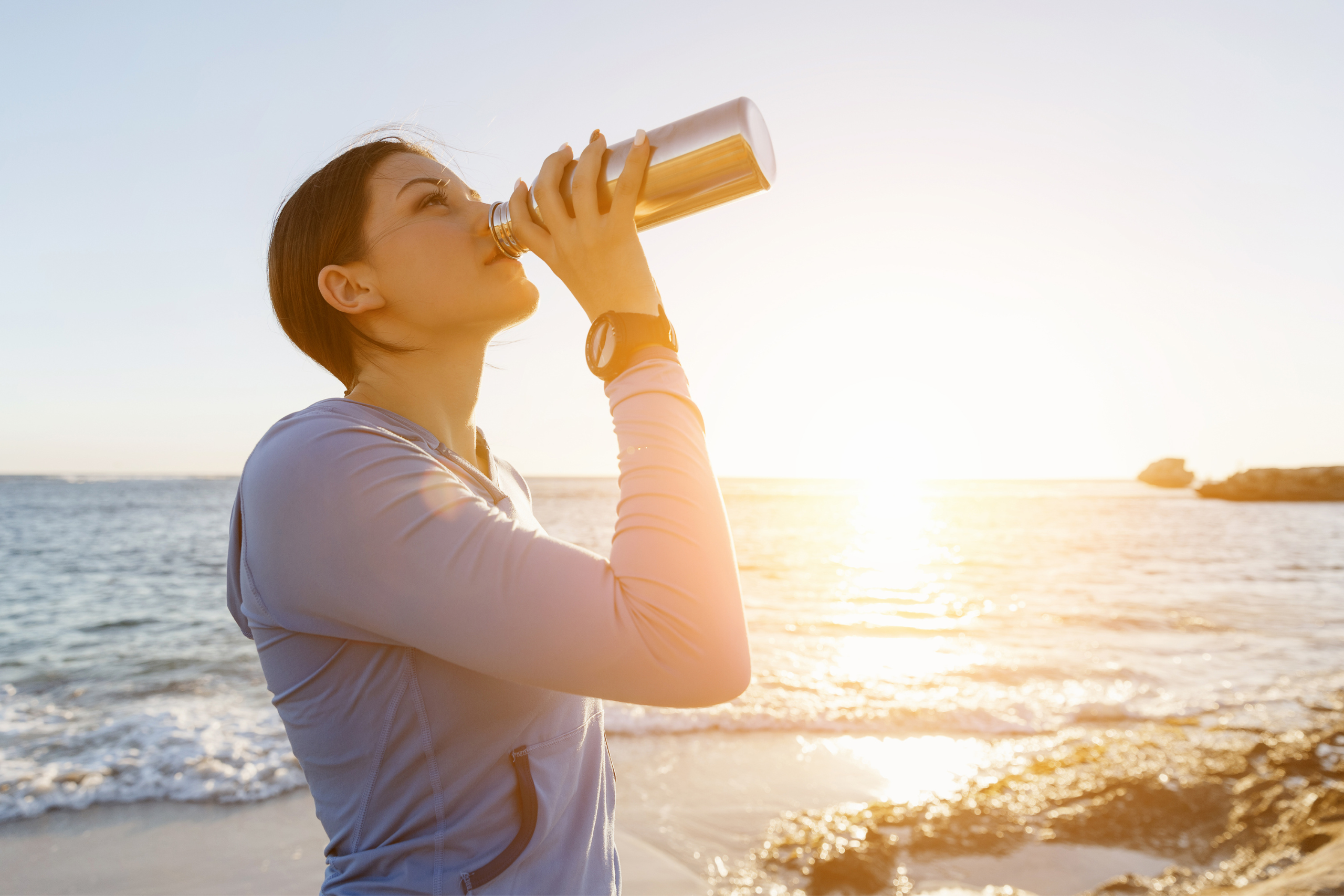Learn the tell-all symptoms of dehydration and how to treat the medical condition
The summertime means sunshine, longer days, outdoor activities, and so much more. While being outdoors is great for the health of the mind and body, it is essential to remember the importance of hydration to ensure you do not become dehydrated.
What is dehydration?
Simply, dehydration can be thought of as your body not having enough water. The medical condition occurs when your body is losing more fluids than it is taking in and has run out of water to carry out its normal functions.
The summer heat mixed with outdoor activities causes your body to lose more water by sweating. When it is hot and humid, your risk for dehydration and heat illnesses rises. However, being in the heat is not the only trigger for dehydration. The weather elevates the risk factor. Here are some of the common causes of dehydration:
- Hot weather and excessive sweating
- Diarrhea
- Vomiting
- Medications
- High fever
It is important to know the signs of dehydration to provide the right help for you or a loved one.
What are the symptoms of dehydration?
Dehydration is a prominent condition that can happen at any time your body does not have an adequate amount of water. The National Academies of Sciences, Engineering, and Medicine suggest that each day women get a total of about 2.7 liters, or 11 cups, of fluid, and men get about 3.7 liters, or 16 cups of water, to avoid dehydration. Also, dehydration is not one answer that fits all. It may look different in different people. People may experience:
- Dry mouth and tongue or extreme thirst
- Less frequent urination
- Dark-colored urine
- Fatigue
- Dizziness
- Confusion
- Headache that gets worst with the movement of the head and neck
What is the treatment for dehydration?
Most mild dehydration cases can be treated with just the correct intake of fluids, like water or a rehydration solution, from your pharmacist. However, most people do not notice they are dehydrated until they have reached a severe stage.
When visiting the ER for dehydration, your doctor will treat you by giving you IV fluids and monitored for the fluids’ effectiveness.
If you or a loved one are experiencing any of the following, please visit your local ER immediately:
- Loss of consciousness
- Conditions do not improve or increase over 24 hours
- Cannot keep liquids down
Tips to Avoid Dehydration This Summer
Dehydration increases the risk of organ damage, muscle breakdown, stroke, kidney stones, difficulty concentrating, and fatigue. To avoid this follow these tips:
- Hydrate before going outdoors
- Listen to your body and the signs
- Eat a salty snack to increase hydration or drink electrolyte-infused beverages
At New Braunfels ER & Hospital, we are available 24/7 to help you stay safe and healthy this summer. From dehydration to exhaustion, our expert team at your local emergency room has you and your loved ones covered with exceptional care for any heat-related illnesses.
Disclaimer: As a service to our readers, New Braunfels ER & Hospital and Nutex Health state no content on this site, regardless of date, should ever be used as a substitute for direct medical advice from your doctor or other qualified clinicians.




Comments are closed